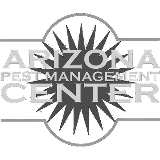Apr 6, 2010
Herbicide Resistance vs Herbicide Tolerance 2011
Tolerance and resistance are two concepts that are often misunderstood when describing herbicides and weeds.
Weeds inherit characteristics that determine how they will respond to herbicides. When we conduct herbicide trials we often list this response for individual weed species as control, partial control or no control or as a percent control. When there is no control we say that a species is tolerant to that particular herbicide in the area and under the conditions that our tests were conducted. On the other hand, when weeds are controlled, we say they are susceptible to the herbicide. It is when weeds change from sus¬ceptible to tolerant that we say that they have developed resistance to that particular herbicide.
The use of selective herbicides began on a large scale in the U.S. in the late 1950’s and early 1960’s. The first case of weed resistance was documented in 1968 in Washington State and involved the resistance of common groundsel to atrazine and simazine. Over the next 25 years, 110 weed species were reported to be resistant to 15 different classes of herbicides. By 2008, the International Survey of Herbicide Resistant Weeds reported 185 weed spe¬cies resistant to 19 classes of herbicides. Arizona is one of only 4 states in the U.S. in which no cases of herbicide resistance has been reported. The states bordering Arizona have all documented at least one weed species with her¬bicide resistance although in Utah, only kochia, which is not a significant weed in the low desert of Arizona, has been reported as resistant. Twenty-two resistant weed biotypes were documented in California, 3 in Colorado, and 2 in New Mexico. The closest incidence of resistance to the Arizona low deserts has been the resistance of littleseed Canarygrass (phalaris minor) to the ACCase inhibitors, Poast, Fusilade and Select in the Imperial Valley, California. This was first documented in 2001, but has not yet occurred in Arizona.
For more information go to the International Survey of Herbicide Resistant Weeds.
To contact Marco Pena go to:
marcop@ag.arizona.edu







